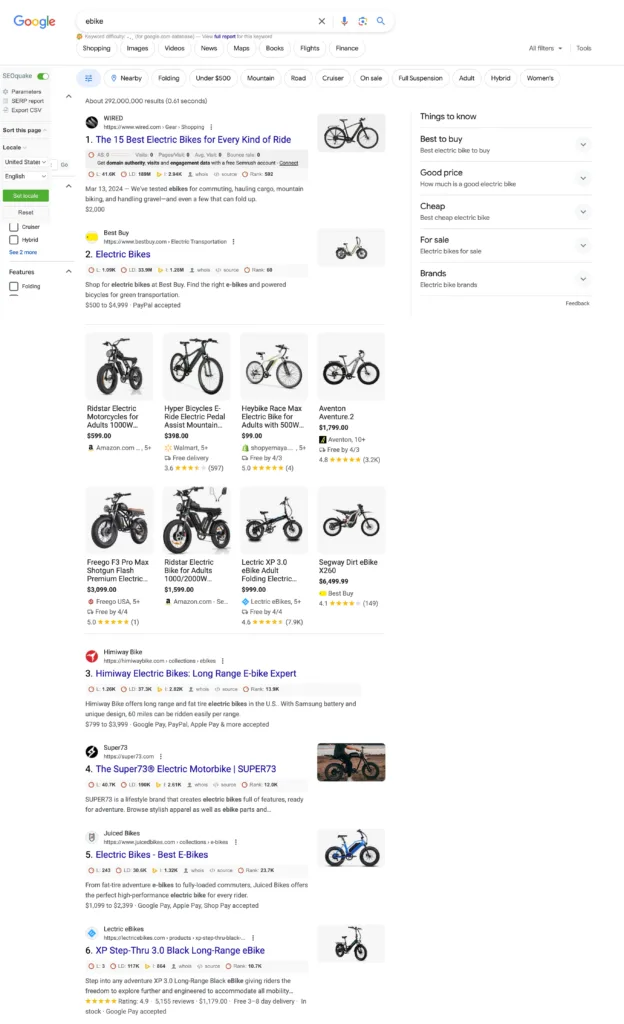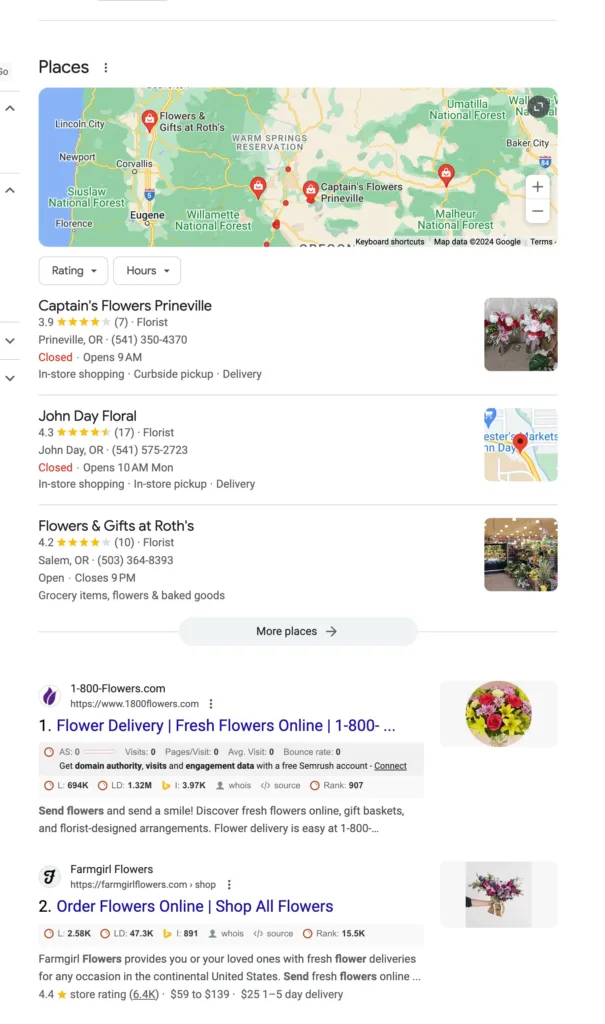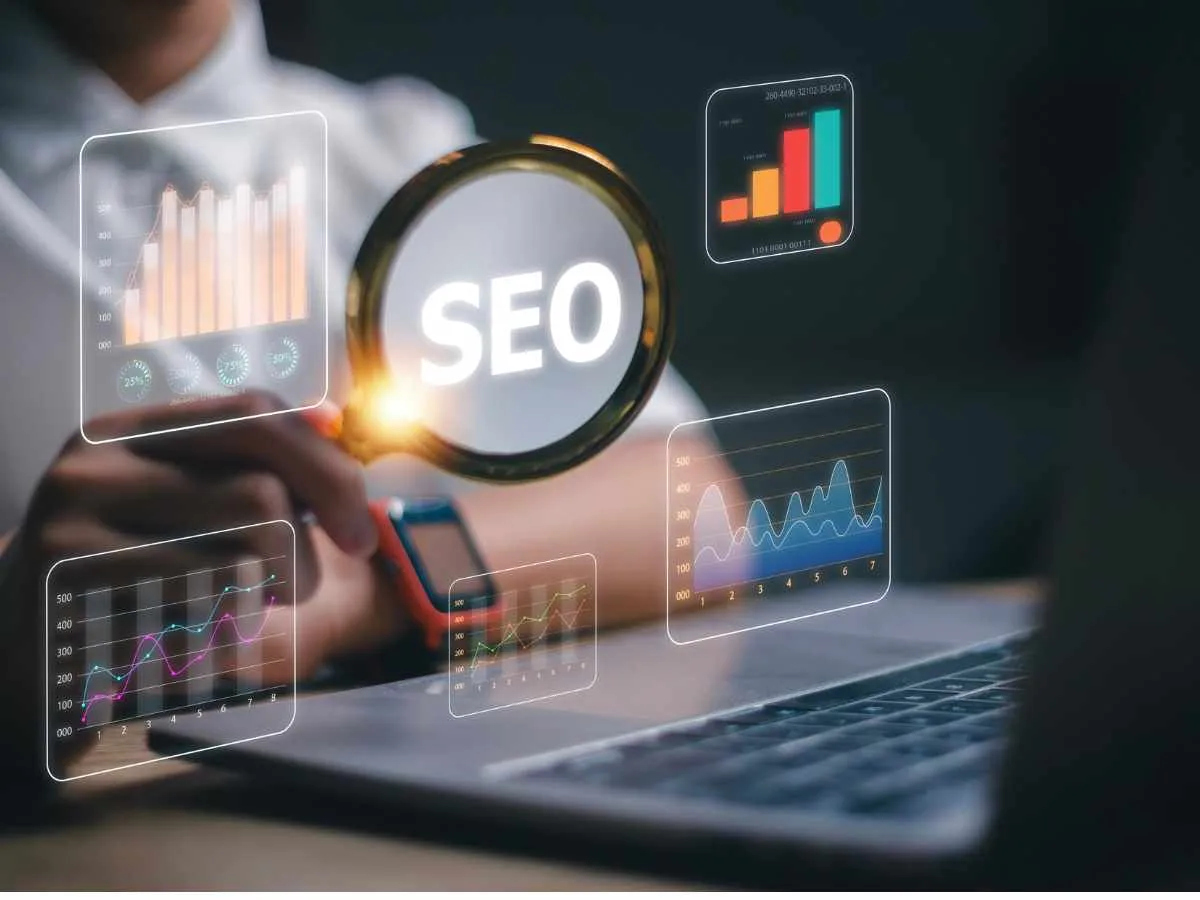Why Is SEO Important for Small Businesses? 10 Reasons to Invest in Search Engine Optimization
So you have a business website.
That’s great! But what’s next? It’s not enough to just hope customers stumble across it. You need to make your site findable, and that’s where SEO, or search engine optimization, comes into play.
SEO, short for search engine optimization, is all about making your website more visible on search engines like Google. And there are some pretty solid reasons to dive into SEO.
If you’re a small business owner looking to grow your online presence and attract more customers, investing in SEO is a no-brainer. It’s time to optimize your website and reap the rewards of improved visibility and increased revenue.
The Importance of Organic Search Traffic
If you’re not familiar with search engine optimization, you might think SEOs are just snake oil salesmen peddling an unnecessary (and often costly) service.
This misconception arises from the lack of understanding of the intricacies and benefits of SEO. Sceptics often underestimate the impact of SEO on increasing brand awareness and driving conversions.
Part of the reason why some business owners distrust SEO is because it’s a long play. They think they’ve wasted their money if they don’t see instant results.
Sadly, this expectation of immediate SEO outcomes also make them vulnerable to unscrupulous individuals in the industry.
An SEO professional worth their salt would never promise that you’ll rank first on the SERPs tomorrow. They’d help you understand how a properly executed SEO strategy can significantly boost website traffic, enhance online presence, and drive organic growth. They’d also tell you that if you want short-term or instant results, then you might want to do paid search campaigns as a tandem strategy.
But organic search is still king when it comes to cheap, sustainable website traffic. Unlike paid advertising, which requires ongoing investment, organic search traffic is much cheaper.
At its heart, SEO is simply increasing your website’s (and web pages) chances of ranking higher in search results. This way, they get seen by your target audience who then clicks on them and visits your website. This can lead to a steady stream of visitors who are actively searching for the products or services you offer, resulting in higher conversion rates.
1. Stand Out in the Digital Crowd
Over the years, the internet has become a more competitive place. The first page of search engine results page is now a raging battleground for brands and products vying for user attention and clicks.
A Hubspot study shows that the majority of users (over 75%) never click past the first page of search results. This means that if your website is not ranking well, it’s practically invisible to potential customers. This emphasizes the importance of SEO for small businesses. By investing in SEO, you can improve your website’s visibility and increase its chances of appearing on the first page of search results.
Of course, this is easier said than done.
The hard truth is that if your competitors have been doing SEO and content marketing for a while, it would be very difficult to beat them. Unless you are pretty well-known in your industry niche (or have a strong local brand), then it would be like going against Goliath.
That’s not saying you should just give up on SEO altogether. On the contrary, you need to optimize your website to avoid getting obliterated.
But to compete, you need a good strategy that would help you slowly carve your share of the online market from the competition.
A good strategy will consist of a healthy mix of quality content, social signals, backlinks, and domain authority.
2. Increase Visibility and Brand Awareness
One of the obvious benefits of SEO is increased visibility as your website starts getting shown in relevant search results.
Let’s say you sell ebikes. When your customers go online and search for the term “ebike,” they would see a search engine results page like this:

Imagine if your website or online store was shown up there on the coveted first page of the SERPs. Even if people don’t click through to your website, it would still mean millions – or even billions – of potential customers seeing your brand and products. That’s a big win in terms of increasing brand awareness.
The best thing of course, is that you didn’t have to spend anything on paid advertising.
3. Build Trust and Credibility
Most people place a high level of trust in search engines. They may not know how Google comes up with the search listings, but they trust that the search engine will give them the best possible results for their search queries.
This trust is carried over to the brands shown in the search engine results page. When your brand consistently appears in relevant search results pages, customers are bound to perceive you as a trusted authority in your industry. After all, Google wouldn’t be showing you on the first page if you weren’t trustworthy, right?
And this makes sense because Google’s ranking criteria also adapt to user behavior. Using user signals such as clickthrough rates and bounce rates, search engines usually reward websites that provide users with the most relevant information and best user experience. So when users often visit your website and don’t bounce right back into search, it indicates to Google that you’re doing a good job at giving users what they want. So your search engine results ranking also improves.
4. Better User Experience
SEO has come a long way after numerous Google SEO updates.
It’s no longer just about keywords or backlinks.
It’s also about satisfying the search intent behind the keywords. In fact, Google’s introduction of E-A-T (Expertise, Authority, Trust) in 2018 as quality signifiers made it necessary for website owners and SEOs to focus on high-quality content. This meant that to rank on search engine results pages (SERPs), your content should be able to demonstrate expertise, authority, and trust.
In 2022, Google added Experience, thereby creating what is now called Google E-E-A-T. So now you not only need to show that you’re an expert or authority that can be trusted, you should also be able to provide your web visitors with a good experience.
Optimizing your website for search engines today means creating content designed for humans instead of the search engines. That is, you can’t simply do SEO for the sake of rankings; you’re compelled to do it for the benefit of your human users first and foremost.
5. Long-Term Sustainable Results
Unlike other marketing strategies that may deliver short-term results, SEO is all about long-term sustainability.
By consistently optimizing your website and keeping up with the latest SEO trends, you can maintain and improve your rankings over time. This means that even if you pause your SEO efforts for a while, your website will still continue to attract organic traffic and generate leads.
This long-term sustainability is crucial for small businesses looking to establish a strong online presence and compete with larger, more established competitors.
6. Local SEO for Small Businesses
The increased use of mobile phones highlights the increased importance of SEO for small businesses. In particular, businesses with physical locations such as retail stores or service providers stand to benefit from local SEO.
Local SEO focuses on optimizing your website for location-based searches, ensuring that your business appears in relevant local search results. By investing in local SEO, you can increase your chances of appearing in the local “map pack” and attracting customers who are looking for businesses in your area. This can drive targeted traffic to your website and increase foot traffic to your physical store.
For instance, if you operate a physical and online flower store, doing local SEO can get you listed in Google Places. Then your business information shows up when mobile users are looking for flowers near their location, like the search results page below:

You’ll notice that the Google Places list appears at the top of the search results, trumping the web pages.
Local SEO also helps you build a strong online presence within your community, making it easier for potential customers to find and choose your business.
7. Cost-Effective Marketing Strategy
Unlike traditional forms of advertising that require significant financial investment, SEO is a cost-effective way to promote your business online.
One client I recently did an SEO audit, for instance, had great rankings on commercial keywords for their ecommerce site. As a result, they were getting a good amount of organic traffic that would have cost them around $13.6 thousand each month if they ran paid ads.

Note that these folks weren’t doing any optimization on their pages. Their product pages didn’t even have seo-friendly title tags and unique meta-descriptions. And they certainly didn’t have tons of blog posts.
This was the reason why they had the ecommerce seo audit done in the first place: they were in the process of revamping their website and wanted the new site to be optimized for search.
While it may take some time and effort to optimize your website and improve your rankings, the long-term benefits make it well worth the investment.
Once your website starts ranking well in search results, the traffic you receive is organic and free. Unlike paid advertising, where you have to continuously pay to maintain visibility, SEO offers sustainable results without ongoing costs. This makes it an ideal marketing strategy for small businesses with limited budgets.
8. Competing with Larger Businesses
As a small business owner, competing with larger, more established businesses can be a daunting task. However, SEO levels the playing field by giving small businesses like you the opportunity to rank well in search results and attract organic traffic.
While larger businesses may have bigger marketing budgets, they are not guaranteed top rankings in search results. On the contrary, larger businesses are often hampered by organizational silos that can affect their SEO initiatives. For instance, they have layers of approval before a piece of web content can be published.
Small businesses may be lean in terms of operations, but they can also be faster in terms of decision-making. Small businesses have the advantage of being able to pivot and adapt quickly, learning from their mistakes and making necessary adjustments to improve their SEO strategies. While the risk of failure is higher, the potential for rapid growth and success is also within reach for small businesses willing to take calculated risks and continuously refine their approach to SEO.
With the right SEO tactics in place, small businesses can successfully compete with larger businesses and carve out their own space in the online marketplace.
9. Targeted Traffic and Higher Conversion Rates
What most small business owners either don’t know or neglect is that SEO has the ability to drive targeted traffic to a website.
Unlike other forms of marketing, where you may be reaching a broad audience that may not be interested in your products or services, SEO allows you to target specific keywords and phrases that are relevant to your business. This means that the traffic you attract through SEO is more likely to convert into paying customers.
In digital marketing, this is what’s called traffic sculpting.
Traffic sculpting is a strategy that involves targeting your ideal audience based on the keywords they typically use. By understanding the keywords that your target audience is most likely to search for, you can tailor your content and marketing efforts to attract those specific individuals.
This approach not only helps you reach the right people but also ensures that you are providing relevant and valuable information to those who are most interested in what you have to offer. Ultimately, traffic sculpting can lead to higher levels of engagement and conversions among your desired audience.
10. Laying A Strong Digital Foundation
By now, you should see that a solid SEO strategy ensures your website remains visible and relevant, securing your business’s online future.
When you invest in SEO, you’re not just aiming for quick boosts in traffic or temporary visibility. Instead, you’re building a solid foundation for your online presence that will continue to deliver results for months and years to come.
With a solid SEO strategy, you can ensure that your website stays visible and relevant in the ever-evolving online landscape. By optimizing your website for search engines, you can attract more organic traffic and reach potential customers who are actively searching for products or services like yours. This not only helps increase your online visibility but also establishes credibility and trust among your target audience.
Ultimately, a strong SEO strategy can secure your business’s online future by keeping you ahead of the competition and driving sustainable growth.
Investing in SEO for Small Businesses
By now you should have realized the importance of SEO for small businesses. If you’re a small business owner looking to grow your online presence and attract more customers, investing in SEO is a no-brainer.
SEO helps you outrank your competitors, drive targeted traffic to your website, and build trust and credibility with your audience. It is a cost-effective marketing strategy that delivers sustainable results in the long term.
It’s time to optimize your website and reap the rewards of improved visibility and increased revenue.




